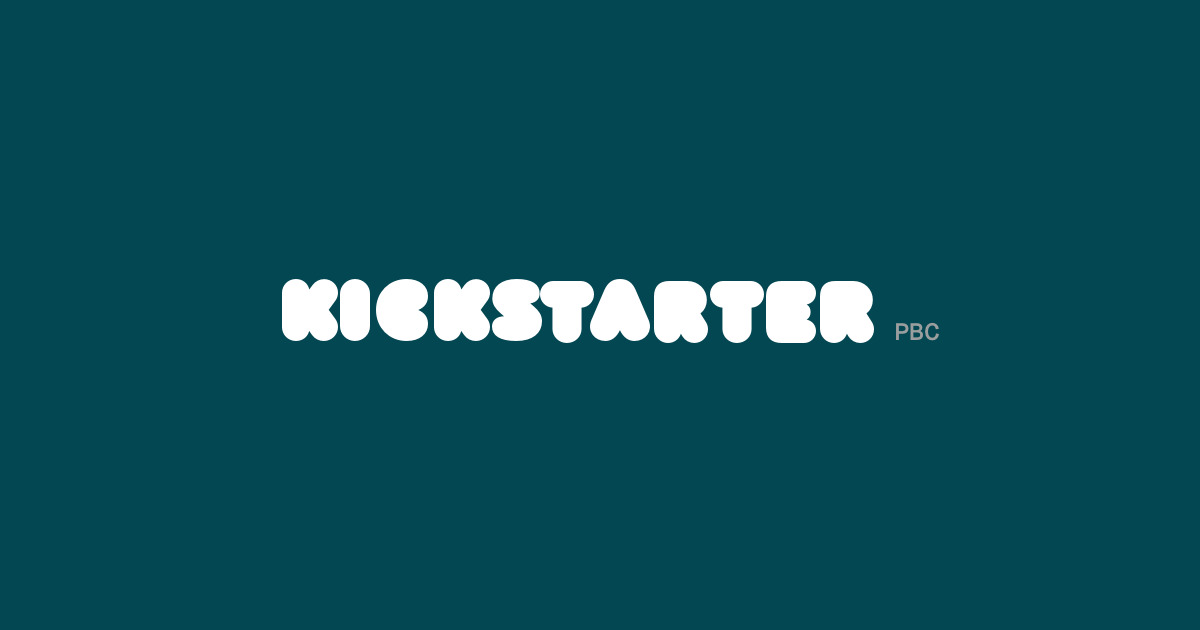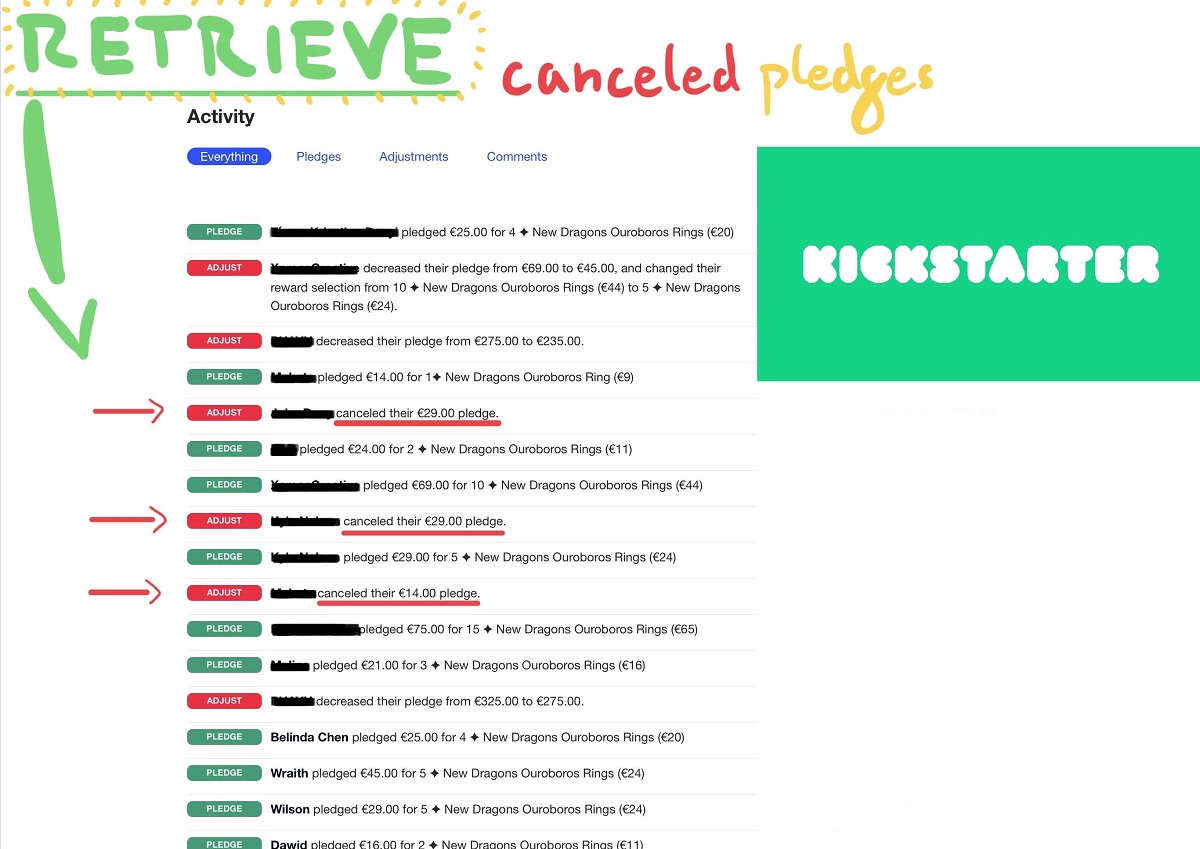Introduction
Kickstarter is a popular crowdfunding platform that allows creators to fund their projects with the support of backers from around the world. Backers contribute money to projects they are interested in, with the hope of seeing those projects come to fruition. However, there may be instances where backers feel the need to request a refund for their pledge. This could be due to various reasons, such as a project not meeting its funding goal, a significant delay in delivery, or the creator failing to fulfill their promises.
Understanding how to navigate the process of getting a Kickstarter refund is essential for backers who find themselves in such situations. While the refund process can vary depending on the circumstances and the stage of the project, there are guidelines that can help backers in their journey toward securing a refund.
In this article, we will delve into the intricacies of Kickstarter refunds and provide a step-by-step guide on requesting a refund. We will also explore alternative options for backers who are unable to secure a refund through the traditional channels. So, if you find yourself in a situation where you are considering requesting a refund on Kickstarter, read on to learn more about the process and how to navigate it effectively.
Understanding Kickstarter Refunds
Before diving into the process of requesting a refund on Kickstarter, it is important to have a clear understanding of what a refund entails within the context of the platform. Kickstarter operates on a reward-based system, where backers receive rewards or incentives in exchange for their financial support. Unlike traditional online shopping platforms, Kickstarter does not guarantee the delivery of a product or service, nor does it provide a refund policy similar to that of retail stores.
When backing a project on Kickstarter, backers are essentially pledging their support to help bring that project to life. The funds collected through Kickstarter are used by the project creator to cover production costs, manufacturing expenses, or other aspects necessary for project completion. In essence, backers become patrons of the project.
With this understanding, it is important to note that Kickstarter does not enforce refunds as a standard policy. Refunds are solely at the discretion of the project creator. Kickstarter encourages project creators to communicate and address issues with their backers in a timely and transparent manner. However, there may be instances where a refund is warranted, such as if a project fails to meet its funding goal or the creator is unable to fulfill their promises.
While Kickstarter does not have a formal refund policy, they do expect creators to fulfill their obligations to the best of their abilities. If a creator fails to deliver on their promises or does not communicate effectively, backers may have grounds for a refund. In such cases, it is crucial for backers to familiarize themselves with the steps to request a refund and the channels available for communication and support.
Now that we have an understanding of the nature of Kickstarter refunds and the platform’s stance on the matter, we can move on to exploring the reasons that may warrant a refund request in the next section.
Reasons for Requesting a Refund
There can be various reasons why backers may find themselves in a situation where they need to request a refund on Kickstarter. While it is essential to remember that refunds are not guaranteed, understanding the potential grounds for a refund can help backers navigate the process more effectively.
One common reason for requesting a refund is when a project fails to meet its funding goal. Kickstarter operates on an “all-or-nothing” funding model, meaning that if a project does not reach its funding target within the specified timeframe, the project is considered unsuccessful. In such cases, backers are typically not charged, and their pledge amounts are not collected. However, if backers are charged and the project does not reach its funding goal, they may have a valid reason to request a refund.
Another reason for seeking a refund is when there are significant delays in project delivery. While delays are not uncommon in the world of crowdfunding and project development, excessive and unexplained delays can be frustrating for backers. If a project creator fails to provide regular updates and does not deliver within a reasonable timeframe, backers may feel justified in their request for a refund.
Furthermore, if a project creator fails to fulfill the promises made during the campaign or delivers a subpar final product, backers may have grounds for a refund. This could include instances where the delivered product does not match the quality or features described during the campaign, or if the project creator fails to deliver any rewards to backers altogether.
It is important to note that each refund request is evaluated on a case-by-case basis, and backers should have clear evidence to support their claim. Kickstarter encourages open communication between backers and creators, urging them to address any concerns or issues promptly. Backers should keep detailed records of their interactions with the project creator and any evidence that supports their refund request.
Having a solid understanding of the potential reasons that may warrant a refund request will help backers navigate the refund process more effectively. In the following sections, we will explore the steps involved in requesting a refund on Kickstarter and the best approaches to communicate with both the project creator and Kickstarter support.
Steps to Request a Refund on Kickstarter
If you find yourself in a situation where you believe you have valid grounds for a refund on Kickstarter, follow these steps to initiate the refund process:
- Review the project’s updates and comments: Before submitting a refund request, make sure to thoroughly review the project’s updates and comments sections. Look for any communication from the project creator regarding delays or issues that may have affected the project’s progress or delivery. It is possible that the creator has already addressed the concerns or provided an explanation for any delays.
- Contact the project creator: If you have not found a satisfactory resolution after reviewing the project updates, reach out to the project creator directly. Use the messaging system provided on Kickstarter to express your concerns and request a refund. Clearly state the reasons why you believe a refund is warranted and provide any supporting evidence you may have, such as missed deadlines or unfulfilled promises. Be respectful and keep your messages concise and factual.
- Document all communication: Keep a record of all your interactions with the project creator. Take screenshots or make copies of any messages exchanged. This documentation will be valuable if you need to escalate your refund request or if you need to provide evidence of your attempts to resolve the issue.
- Consider reaching out to other backers: If you are not receiving a response from the project creator or if they do not address your concerns adequately, consider reaching out to fellow backers. Use the comments section or any backer forums associated with the project to inquire about their experiences or seek advice. Together, you may be able to gather more information and explore possible avenues for seeking a refund.
- Contact Kickstarter support if necessary: If you have exhausted all communication channels with the project creator and have not received a satisfactory resolution, you can reach out to Kickstarter support for assistance. Visit the “Help Center” on Kickstarter’s website and follow the instructions for contacting support. Provide them with a clear and concise explanation of your issue, including relevant information and documentation. Kickstarter support will review your case and facilitate communication between you and the project creator if necessary.
Keep in mind that the refund process on Kickstarter can be complex and may take time to resolve. Patience and persistence are key when seeking a refund. By following these steps and documenting your efforts, you increase your chances of securing a refund.
Communicating with the Project Creator
When seeking a refund on Kickstarter, effective communication with the project creator is crucial. Here are some tips to help you navigate your interactions with the project creator:
Be polite and respectful: It is important to maintain a respectful and professional tone when communicating with the project creator. Remember that they are also human and may be facing their own challenges in the project development process. Avoid using aggressive or confrontational language, as this can hinder the resolution process.
Clearly state your concerns: Clearly articulate the reasons for your refund request and explain the issues you have encountered. Be specific about how the project has not met your expectations or the promises made during the campaign. Providing concrete examples and evidence, such as missed deadlines or unfulfilled rewards, can help the project creator understand the gravity of the situation.
Ask for updates and timelines: Request regular updates from the project creator to stay informed about the progress of the project. Ask for a realistic timeline for delivery or resolution of the issues. Having a timeline can help manage your expectations and determine if a refund request is necessary.
Maintain detailed records: Keep a record of all your communication with the project creator. Take screenshots or save copies of messages exchanged. This documentation will be valuable if you need to escalate your refund request or if you need to provide evidence of your attempts to resolve the issue.
Allow time for a response: Give the project creator a reasonable amount of time to respond to your refund request and concerns. Remember that they may be dealing with a high volume of messages or may require time to address the issues you have raised. Patience is key during this process.
Consider alternative resolutions: While a full refund may be the ideal outcome, it is worth considering alternative resolutions that may be offered by the project creator. This could include partial refunds, replacement products, or compensation in the form of additional rewards or incentives. Be open to exploring different options that could still provide some form of resolution or satisfaction.
Escalate the issue if necessary: If you are unable to reach a satisfactory resolution through direct communication with the project creator, you may need to escalate the issue. This could involve seeking assistance from Kickstarter support or exploring other avenues for legal recourse, if applicable. While escalation should be a last resort, it may be necessary if all other attempts at resolution have been exhausted.
Remember that effective communication and a respectful approach can greatly contribute to a better resolution to your refund request. Keeping these tips in mind can help foster a productive dialogue with the project creator and increase the likelihood of reaching a mutually beneficial outcome.
Contacting Kickstarter Support
If you have attempted to resolve your refund issue directly with the project creator and have not received a satisfactory resolution, you can escalate the matter by contacting Kickstarter support. Here are the steps to follow when reaching out to Kickstarter support:
- Visit the Kickstarter Help Center: Start by visiting the Kickstarter Help Center on their website. The Help Center provides a wealth of information and resources to address common questions and concerns. Take the time to review the relevant articles and FAQs related to refunds to ensure you are well-informed.
- Find the appropriate contact method: Navigate through the Help Center to find the appropriate contact method for your specific issue. Kickstarter offers different contact options, including email support or submitting a support form. Choose the method that best suits your situation.
- Compose a clear and concise message: When contacting Kickstarter support, clearly explain your refund request and the efforts you have made to resolve the issue with the project creator. Provide any relevant evidence and documentation that supports your claim. Be concise but thorough in your explanation to ensure that support staff have all the necessary information to assist you effectively.
- Be patient and allow time for a response: It may take some time for Kickstarter support to review and respond to your inquiry. During this waiting period, exercise patience and avoid sending multiple messages in quick succession. Instead, allow a reasonable amount of time for them to address your concerns and provide a resolution or guidance.
- Follow up if necessary: If you have not received a response after a reasonable time has passed, you can consider following up with Kickstarter support. Politely inquire about the status of your inquiry and provide any additional information or updates that may be relevant to your case. This gentle reminder can help ensure that your request receives the attention it deserves.
When contacting Kickstarter support, it is essential to remain calm and professional. Clearly articulate your issue, provide supporting evidence, and keep your communication respectful. The support team will review your case and work towards providing a resolution or further guidance to help address your refund request.
Remember that Kickstarter support is there to assist you, but the resolution process may take time, especially if the issue is complex. Be patient and maintain open and responsive communication with Kickstarter support throughout the process.
Escalating Your Refund Request
If you have not received a satisfactory resolution from the project creator or through Kickstarter support, you may need to consider escalating your refund request. Here are some steps you can take:
- Document all previous communication: Make sure you have thorough documentation of all previous communication with the project creator and Kickstarter support. This includes emails, messages, screenshots, and any evidence that supports your refund request. Having a well-documented record will be crucial when escalating the issue.
- Research legal options: Depending on the circumstances and the amount of money involved, you may want to research if there are any legal options available to you. Consult with a legal professional who specializes in consumer rights or crowdfunding to understand what recourse you may have. Keep in mind that pursuing legal action should be a last resort and should only be considered if the funds involved justify the cost and effort.
- Seek assistance from backer communities: Reach out to online communities of crowdfunding backers. There are forums and groups where backers share their experiences and knowledge. Seek advice and inquire if others have faced similar issues and how they resolved them. You may discover new strategies or alternative avenues to pursue for your refund.
- Consider social media exposure: If all else fails, you may want to consider sharing your experience on social media platforms. While this should be done responsibly and without malicious intent, raising awareness about a problematic project or a failed refund request can sometimes prompt the project creator to address the issue swiftly.
- Report the project to Kickstarter: If you believe the project has violated Kickstarter’s guidelines or terms of use, you can report it directly to Kickstarter. Visit the project page and use the “Report this project” feature to notify Kickstarter of your concerns. They will review the report and take appropriate action if warranted.
Remember that escalating a refund request should be a last resort. Exhaust all other options before considering legal action or devoting further time and effort into resolving the issue. Be prepared for the possibility that a resolution may not be achieved, and weigh the potential outcomes against the resources you are willing to invest.
While escalating your refund request may provide additional avenues to explore, it is important to maintain a level-headed and respectful approach throughout the process. Conduct yourself in a responsible and ethical manner as you seek a fair resolution.
Alternatives to Getting a Refund
In some cases, securing a refund on Kickstarter may not be possible or may prove to be a challenging process. However, there are alternative options that you can consider to mitigate the situation and potentially find a resolution. Here are some alternatives to getting a refund:
- Request an alternative reward: Instead of a monetary refund, you can reach out to the project creator to discuss the possibility of receiving an alternative reward or compensation. This could involve receiving a different product or service from the creator that holds a similar value to what you had originally pledged.
- Take part in a revised campaign: If the project has encountered setbacks or delays, the creator may launch a revised campaign or seek additional funding. Consider whether you are willing to continue supporting the project by pledging again. However, exercise caution and thoroughly research the project’s updated plans and progress before making a decision.
- Resell or trade your reward: If you have received a physical reward that you no longer wish to keep, you can explore reselling or trading it with other backers or interested parties. Online marketplaces, forums, or dedicated platforms for crowdfunding rewards can be useful for connecting with potential buyers or traders.
- Consider it a loss: In some cases, it may be more practical to accept the loss and move on. While this may be disappointing, weighing the effort, time, and potential expenses of pursuing a refund against the refund amount itself may make it more reasonable to let go and learn from the experience.
- Share your experience and provide feedback: Use your experience to help others make informed decisions on Kickstarter. Leave a candid and honest review on the project page, outlining your experience and the issues you encountered. This feedback can be valuable to future backers and may aid in holding creators accountable.
It is important to carefully evaluate your options and choose the alternative that aligns best with your circumstances and desired outcome. Keep in mind that each situation is unique, and what may work for one backer may not be suitable for another.
Going forward, conduct thorough research before backing projects on Kickstarter. Look for evidence of past successful projects by the same creator, examine the level of communication and transparency in their campaign updates, and read through comments and feedback from previous backers. This due diligence can help minimize the risk of encountering refund issues in the future.
Remember that while getting a refund is the ideal resolution, exploring alternative options can still provide some form of mitigation or recourse in situations where a refund may not be possible.
Conclusion
Navigating the process of requesting a refund on Kickstarter can be challenging, but with the right approach and understanding, it is possible to find a resolution. Kickstarter operates on a reward-based system, which means that refunds are not guaranteed, and the responsibility lies with the project creator to fulfill their promises. However, if you find yourself in a situation where a refund is warranted, following the steps outlined in this article can help you navigate the process effectively.
Understanding the nature of Kickstarter refunds and the platform’s expectations is essential. Clear communication with the project creator is crucial, as it provides an opportunity to address any concerns and work towards a resolution. By documenting your communication, being respectful, and clearly expressing your concerns, you increase your chances of reaching a satisfactory outcome.
If direct communication with the project creator does not yield a resolution, reaching out to Kickstarter support is the next step. The support team will review your case and assist in facilitating a resolution or providing guidance. Patience is important during this process, as it may take time for them to address your concerns.
In some cases, securing a refund may not be possible, or the process may become too challenging. Exploring alternative options, such as requesting alternative rewards, participating in revised campaigns, or accepting the loss, can provide some form of resolution or mitigation.
Finally, it is important to share your experience and provide feedback to help others make informed decisions. Leaving honest reviews and sharing your insights contribute to the Kickstarter community and may help hold creators accountable.
As a backer, it is crucial to conduct thorough research before pledging support to projects on Kickstarter. Assess the credibility of the project creator, review past projects, and read feedback from other backers. This due diligence can help minimize the risk of encountering refund issues in the first place.
Remember, while requesting a refund on Kickstarter can be a challenging process, approach the situation with patience, persistence, and a calm demeanor. By following the steps outlined in this article and understanding the intricacies of Kickstarter refunds, you are better equipped to navigate the refund process and work towards a fair resolution.

























